I have learned to assign specific dishes to guests ensures a diverse spread and avoids a potluck dominated by one type of food. It's all about ensuring everyone gets to enjoy a variety of flavors and dishes.
Wondering, can you freeze eggs? Absolutely! If you're tired of letting good eggs go bad, freezing them is your answer. With a few handy tips, you can store the whole egg, just the yolks, or only the whites, ensuring you have them on hand for your favorite recipes and saving some cash along the way.

Want to save this recipe?
Enter your email & I'll send it to your inbox. Plus, get great new recipes from me every week!
Jump to:
This page may contain affiliate links; please see my disclosure for policy details. I earn commissions if you shop through the links on this page.
Why freeze eggs?
If you love eggs, freezing raw eggs is a great option, especially when you have a recipe that calls for just using the egg white or just using the egg yolk; you can freeze the leftover parts. Here are a few more reasons to freeze chicken eggs. You can freeze chicken eggs for up to a year, so this valuable ingredient is readily available for your cooking and baking needs.
- Cost savings: With egg prices rising lately, freezing eggs is a great way to prevent food waste. However, you could also buy extra eggs if you find a good deal and want to get more bang for your buck.
- Convenience: By freezing eggs in small portions, you can easily add to recipes that require one or two eggs. And if your recipe calls for just whites or yolks, it’s easy to pull them out of the freezer. There's no need to use an egg substitute when you're out.
- Surplus: If you are a homesteader raising chickens, you may find yourself with lots of eggs, so freezing them is a great option. Are you going on vacation? Freeze your eggs so they don’t go bad while away.
- Adaptable: Frozen eggs can be used in various breakfast recipes like classic scrambled eggs, and omelets, or added to pancake or waffle batter. Use your frozen eggs for baked goods and egg washes to get that golden brown color on top of scones and biscuits. Keep frozen eggs to add to casseroles, too.
Can you freeze eggs in the shell?
Freezing whole eggs is not advisable since the egg will expand as it freezes and cause the shell to crack open.
What type of container do you need for freezing eggs
You definitely don’t need a special container; look around your kitchen to find something to hold the egg while it freezes. Here are some ideas.
- Muffin tins: Use the regular size for a whole egg and the mini muffin tin for egg yolks and egg whites. Spray with cooking spray before adding the eggs.
- Ice cube trays: A standard ice cube tray will hold one egg yolk or one egg white. A whole egg will not fit, but you could divide the egg. Use cooking spray so the frozen eggs can be removed easily.
- Zip top freezer bags: Pour the beaten eggs, egg yolks or whites into the bag and lay flat to freeze.
- Silicone molds: The molds are meant for the freezer for food prep and are the perfect size for freezing eggs.
“A few months ago, we had to travel internationally due to a family emergency, and I’d just bought two dozen eggs for baking (when they were super expensive!) So, I froze them individually in muffin tins (after scrambling them with a bit of salt). Then, transferred to a freezer bag! When we returned, I grabbed some as I needed to make scrambled eggs or a frittata.”
— Shruthi, Urban Farmie
Why add salt or sugar when freezing eggs?
When freezing whole eggs or just the egg yolk, the texture changes because the yolk will become thick and gelatinous. Make sure to beat the egg until smooth, then add a pinch of salt or sugar to the beaten egg to stop the thickening.
How to freeze eggs
To freeze eggs successfully, you need to prepare them properly. This involves cracking and beating the egg, adding salt or sugar, freezing them and transferring the frozen eggs to a freezer container.
How to freeze individual eggs
Here are the simple steps on how to freeze eggs individually for an easy grab-and-go type of method.
- Break the egg in a small dish and stir to combine the yolk and the white.
- Add a sprinkle of salt or sugar.
- Pour the egg into the freezing container and freeze the egg for four to six hours. Once fully frozen, remove from the freezing container and place the frozen egg in a freezer-safe bag for long-term storage.
- Or pour it directly into the plastic freezer bag and freeze it flat.
- Freeze eggs for up to six months.
“When our chickens start laying up a storm in springtime, we often freeze omelet mixes in wide-mouth mason jars with straight sides (jars with shoulders can crack when frozen!). Crack open your eggs, and add them to the jar with any fixings you like: cheese, ham, veggies, etc. Leave at least one inch of room at the top of the jar, put a lid on and freeze. In winter, when the chickens lay less often, pull a jar out the night before and put it in the fridge. In the morning, pour your ready-made omelet mix into the pan, and you are good to go.”
— Tamara Reid, The Reid Homestead
The best method for freezing several eggs together
This is best if you know you have a recipe that uses a certain amount of eggs, so you can freeze that amount for breakfast casseroles like this egg, sausage, and hashbrown casserole that uses six whole eggs.
Expert tip: It’s best to crack each egg individually in a small bowl to make sure it is still fresh and not rotten before adding to a whole batch of eggs.
- Crack as many eggs as you want in a bowl, then whisk to combine.
- Add a teaspoon of salt or sugar per one cup of eggs.
- Pour the eggs into a freezer plastic bag and remove as much air as possible.
- If using a freezer container, leave one-half inch of room at the top of the container for the eggs to expand.
- Label the container with the date and how many eggs it contains.

How to freeze egg whites
Freeze egg whites by beating them slightly, then pour them into the muffin tin or ice cube tray to freeze. Once frozen, remove from the container and place in a freezer bag for six months. You do not need to add salt or sugar to egg whites.
Frozen egg whites whip up beautifully and quicker than fresh egg whites and are perfect for making meringues for pies or frosting that hold stiff peaks.
How to freeze egg yolks
Break the egg yolk up in a small bowl and stir in a pinch of sugar or salt to stabilize the yolk. Freeze the yolk in a muffin tin or an ice cube tray.
Egg yolks can be frozen, but they change in texture once thawed; the yolks thaw in a soft, solid state but are still usable in most recipes.




How to thaw and use frozen eggs
The following steps should be followed when thawing and using frozen eggs.
- Place the frozen eggs in a sealed container in the refrigerator to let them thaw for six to eight hours or overnight.
- You can quickly thaw frozen eggs that are in an airtight container under cold running water.
- When thawed, stir the eggs well before using them, and use them as soon as possible to maintain their freshness.
- Do not refreeze thawed eggs.
- Use these eggs in this recipe for Mini Swiss Cheese Quiches or these Mini Egg Muffins.
“Our chickens are so prolific we have started freezing their eggs for wintertime use. I lightly beat them and pour them into freezer bags. Sealed and laid flat to freeze, they don't take up much room, and we have eggs all winter long! I love having them tucked away for times when money is short, or I can't get to the grocery store.”
— Laura Sampson, Little House Big Alaska
Pro tips for egg freezing
Freezing eggs is a simple procedure with just a few simple tricks.
- You can get the best results by adding a pinch of sugar or salt to the eggs before freezing.
- It is important to remove as much air from the freezer bag or freezer-safe container as possible.
- Eggs have to thaw in the refrigerator slowly, not at room temperature. Otherwise, you run the risk of spoiling your eggs.
- You can pick the number of eggs to add to a container to grab and use in your favorite egg recipes.
- Do not put frozen eggs in the microwave or hot water to thaw faster; it will ruin the eggs.
- Freezing fresh eggs is best, as you do not want to freeze eggs close to expiring for future use.
Label Before You Freeze
Make sure you label your freezer containers or bags so you know what you have frozen and when. In this article, you can learn about freezing foods to help you save money and avoid food waste and how to freeze cookie dough.

Whether you have a bunch of eggs from your backyard chickens or want to stock up for baking projects, freezing is a great option. Take advantage of always having fresh eggs on hand; they are perfect for egg-based dishes.
If you like hard-boiled eggs, make sure to read How To Boil Hard Eggs with ease! Achieve flawless firm whites and lusciously creamy yellow centers every time.
Use Eggs In These Recipes

Subscribe here for more great recipes, and follow One Hot Oven for more tasty sweet and savory recipes! Pinterest | Instagram | Facebook
Recipe

How To Freeze Eggs
As an Amazon Associate I earn from qualifying purchases.
Ingredients
- 1 egg can be any amount of eggs
Instructions
How to freeze whole eggs
- Break the egg in a small dish and stir to combine the yolk and the white. Then add a pinch of sugar or salt.
- Pour the egg into the freezing container and freeze the egg for four to six hours. Once fully frozen, remove from the freezing container and place the frozen egg in a freezer-safe bag.
How to freeze egg yolk
- Break the egg yolk up in a small bowl and stir in a pinch of sugar or salt to stabilize the yolk. Freeze the yolk in a muffin tin or an ice cube tray. Remove the frozen yolk and transfer it to a freezer bag. You can also freeze the yolks directly in the freezer bag.Or pour it directly into a plastic freezer bag and freeze it flat.
How to freeze egg white
- Freeze egg whites by beating them slightly, then pour the white into a muffin tin or an ice cube tray. Remove the frozen whites and transfer to a freezer bag. You can also freeze the whites directly in the freezer bag. You do not need to add salt or sugar to egg whites.
Frozen egg storage
- Date and label the freezer containers. I like to mention the number of eggs in a freezer container when I freeze more than one egg. Once the eggs are frozen they will last for up to six months.
Notes
Nutrition
Thank you for stopping by the One Hot Oven blog. Please leave a comment to say hello or tell me what you are baking; I always love hearing from fellow bakers. Do you have any questions or want to chat about the recipe? Please visit my About page for information, and I’ll be happy to help!
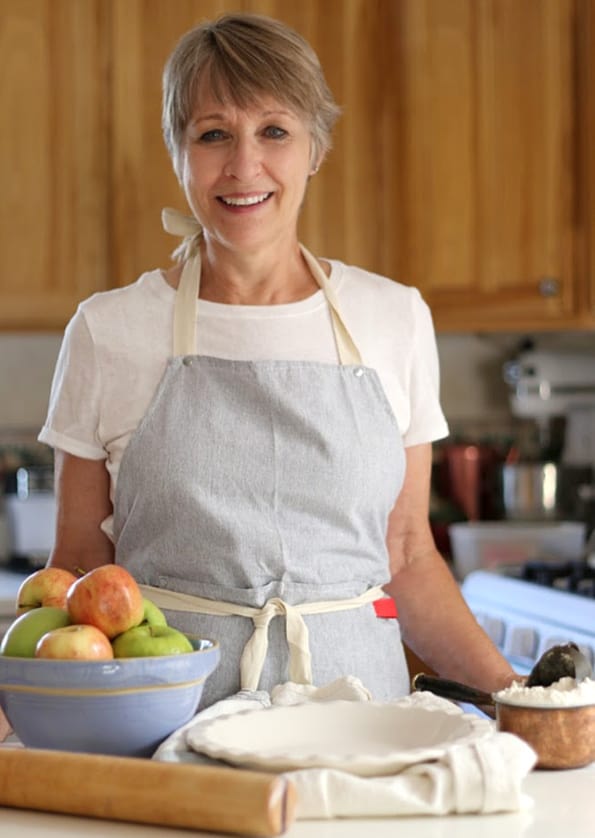
Hello there, I'm Jere'
From learning to cook on a farm in Indiana to culinary school in California, my passion for food is never-ending. Turning on my oven to bake something for friends and family is my happy place, and I am glad to be here at One Hot Oven sharing sweet and savory family-friendly recipes for your cooking and baking inspiration.
This article originally appeared on Food Drink Life







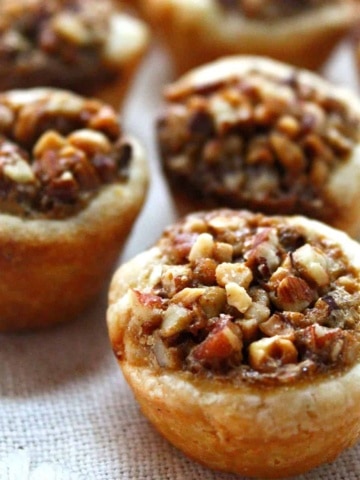
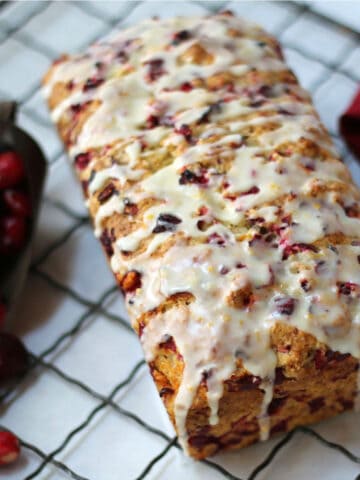

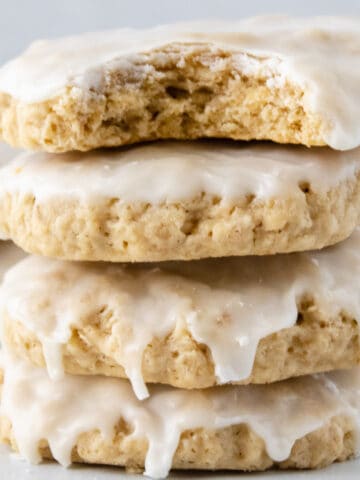
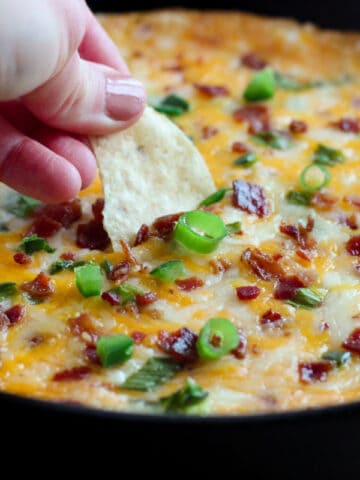


Chelsea
Freezing eggs never crossed my mind. The individual freezing method is so convenient and now I won't waste any eggs anymore. Excited to start cooking these frozen eggs and try it out in my dishes.
Ann
I had NO idea it was possible to freeze eggs! Ive been trying to reduce food waste so this was perfect!
Kendall
Thanks for the great tips. Who knew??
GRETA
Never knew of these tricks before. I never even thought about the eggs to have it frozen. It is good to know all these tips. Thank you
Sandy
The freezing eggs process is incredibly useful for me. We don't consume a lot of eggs and use it for baking alone. I waste a lot of eggs because I don't get to use them all within the 'best by' date. I froze a batch of whole eggs last night and transferred them into freezer bags this morning.
Shirley
This article was so helpful. I bake a lot and many times only need an egg white or an egg yolk, then I have the other part that I don't need to use. I just didn't realize you can freeze eggs.